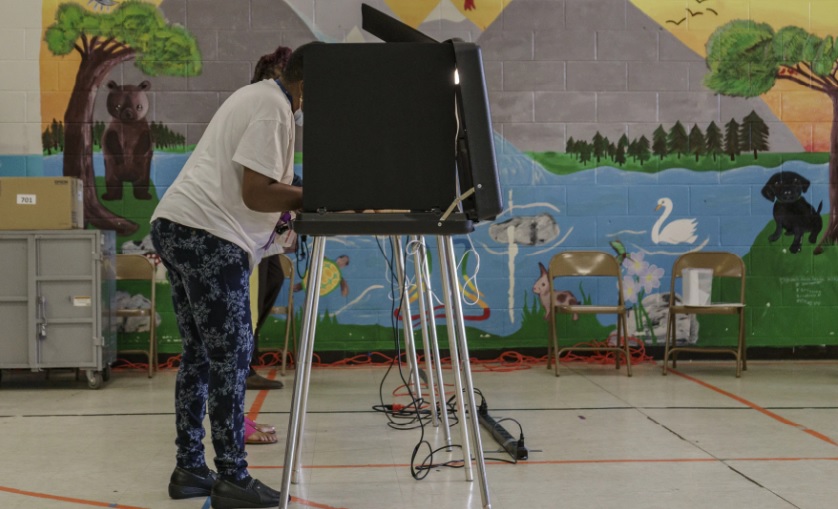A purge that affected nearly 3,400 Virginia voters was the result of poor communication and software that was improperly updated, according to a new report from the Virginia Office of the Inspector General.
The Dec. 15 report, which was commissioned by Gov. Glenn Youngkin and drew from interviews with his office, the Virginia Department of Elections (ELECT) and Virginia State Police, “did not uncover any indications that staff from either agency intentionally disqualified voters or willfully permitted ineligible citizens to vote.”
This story wass reported and written by VPM News
The removals affected people who’d had a probation violation and who, under state law, never should’ve been removed. When VPM News first reported the issue, ELECT initially denied there was a problem and later estimated it affected less than 300 people. Roughly a month after VPM’s first report, the department said it had reinstated closer to 3,400 voters.
The error stems from Virginia’s unique status as the only state where people convicted of any felony automatically lose the right to vote unless the governor restores it. While that power is discretionary, in 2021, former Gov. Ralph Northam expanded the process to apply to anyone who’d been released from prison, even if they were still on probation.
In October 2022, state election staff noticed that VERIS, the state’s voter registration system, didn’t flag a voter who’d been convicted of a new felony after having their rights restored. The department made changes to the software to make sure those individuals were removed and boasted of removing 10,558 ineligible voters.
The problem: ELECT didn’t take into account that the data they received monthly from a database maintained by Virginia State Police marked probation violations as new felony convictions.
After news coverage of the problem, both ELECT and VSP made changes to their process to catch voters who’d been improperly removed and ensure the error didn’t continue going forward. The departments are also in the process of developing new software for a new criminal records database and election IT system that the report says are on track to be implemented by July 2025.
“OSIG’s investigation revealed that insufficient communication among agencies and inadequate system development for VERIS led to the identified system failures as Virginia law and restoration rights changed,” the report says.
The report’s conclusion, however, blames a VERIS “software malfunction;” wording that two Democrats said improperly suggested a technical, rather than human, error.
Del. Cia Price (D–Newport News), incoming chair of the privileges and elections committee, said the report didn’t address some of her concerns. While ELECT said registrars sent out letters to affected voters, Price said the report didn’t address whether that strategy was effective.
Del. Marcus Simon (D–Fairfax), who sits on the same committee, said the episode could spark legislation in the upcoming legislative session to prevent it from repeating. He questioned why ELECT and the Youngkin administration hadn’t been more cautious about making changes.
“It's a little bit like this idea that, you know, better to disenfranchise 100 people that should be able to vote than let one person who shouldn't cast the vote,” Simon said.
The report doesn’t directly address Youngkin’s suggestion that ineligible voters may have been allowed to cast ballots because VERIS had allowed them to remain on the rolls.
Youngkin’s spokesperson, Macaulay Porter, said the report’s findings are “consistent with our current actions and will help correct the decades-old process to ensure that those that are eligible, can vote."
A spokesperson for ELECT confirmed they’d identified 3,400 affected by the removals and declined to comment on the report.

